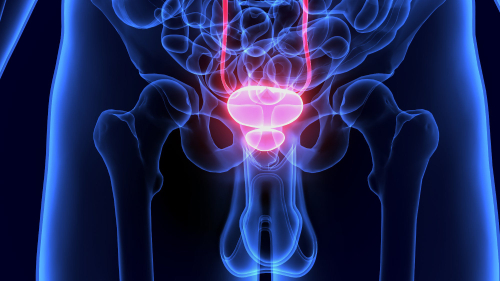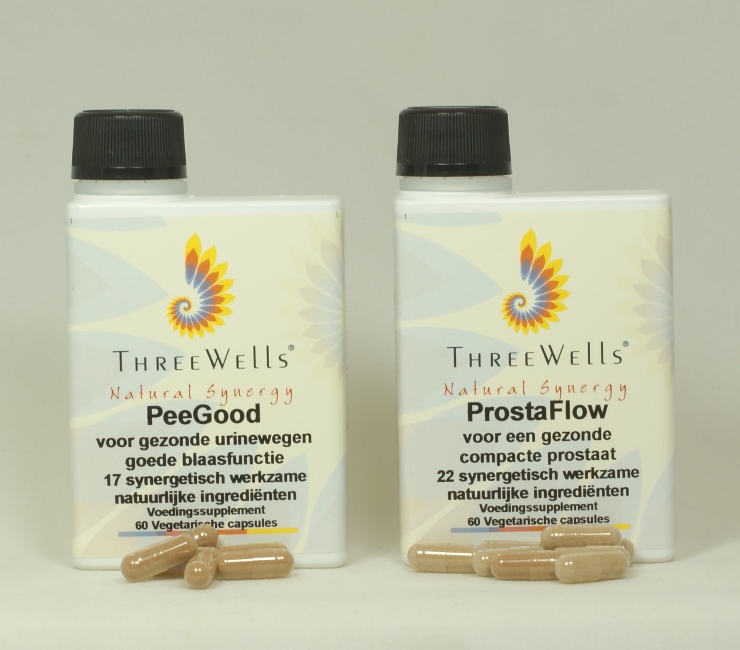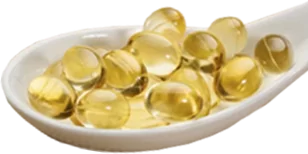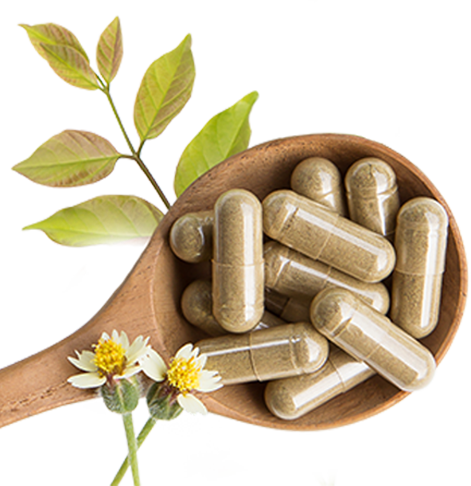maintenance – prevention – healing

- About 1 in 8 men will be diagnosed with prostate cancer during their lifetime
- 6 in 10 cases of prostate cancer are diagnosed in men 65 years of age or older
- Nearly 1 in 10 men who develop prostate cancer are under age 60
- In most men over the age of 45, the prostate gets progressively larger
- The prostate is often called a gland, but it consists of 70% glandular tissue and 30% muscle tissue
- 70% of Dutch men aged 60 and older have urinary complaints to a greater or lesser extent
- Between the ages of 30 and 80, as many as 1 in 5 struggle with unwanted loss of urine droplets
- Men are more likely to have urinary tract infections
- Testosterone may play a role in prostate growth
- Muscle relaxants can have side effects such as incontinence, dripping, dizziness, impotence, erectile dysfunction
- Occasional extreme alcohol consumption can temporarily paralyze bladder muscle function, making urination impossible
Urinary problems in men arise not only from an enlarged prostate but often from improper urination habits, stress, medication, muscles of the bladder, pelvic floor not working properly, disturbed neurotransmission from the brain.
Recently for 6 weeks I faced extreme urinary tract symptoms, prostate. Including incontinence, bladder infections, prostatitis, bed-wetting, unable to urinate, unable to hold up urine, enlarged prostate, huge cramps, pains, having to pee every 15 minutes 24 hours a day. Huge muscle cramps in the lower abdomen , all organ muscles.
The root cause was that after a very pleasant evening with way too much wine intake I could not pee 1 hour after coming home and for 12 hours I could not pee a drop and I had a huge urinary pressure. The reason for not being able to urinate was that the excessive alcohol consumption had “shut down” the neurotanic transmission of my bladder receptors through the parasympathetic nervous system to my brain. Due to the enormous urinary pressure, for 1- 2 days I extremely overloaded and damaged all the muscles bladder wall muscle, bladder ring muscle, ureter muscles, prostate muscles, pelvic floor muscles, anus muscles, bowel peristalsis , abdominal muscles only. I had to urinate every hour day and night for 4 weeks with amounts of 25 – 50 ml at a time while a normal bladder capacity is between 250 and 500 ml.
I started to research the cause and possible solutions both within Western medicine and original natural medicine.
During this process, I reviewed many scientific articles and published studies. Also about natural ingredients there is an enormous amount of scientific information available. During intervision with fellow therapists, doctors and experts it became clear to me that there is a huge taboo among men to talk about this. The moment you share your own experience this taboo is broken and many experiences are exchanged. The two most frequently heard comments were, “you can’t do anything to reduce prostate enlargement, can you?” and “my urinary problems are because of my enlarged prostate”.
There are many misconceptions about prevention, possible causes, treatment methods, medication , alternative approaches.
Numerous scientific double blind placebo controlled studies conducted by Western universities substantiate the efficacy of natural remedies. It is illegal in Europe for manufacturers of food supplements to openly publish disease claims. For this reason, you often hear: “If these natural remedies work so well, why aren’t they published?”
“There are three classes of people:
Those who see
Those who see when they are shown
Those who don’t see Leonardo Da Vinci “
I would like to make the complex problems understandable to a wider group of people so that it can be talked about more easily, it becomes clear that there is much that can be done to prevent, reduce and be able to reduce the symptoms.
It goes without saying that it is always important to consult a doctor , urologist, specialist in case of serious health issues.
The text below contains:
- concise explanations and background information on how the urinary tract and prostate work
- explanation of the functioning and role of muscles in the male urinary tract and prostate
- scientific studies substantiating the efficacy of various natural remedies
- show possible complementary treatment methodologies
- introduction of our newly developed nutritional supplements, cream, cannabinoid oil and integral male support package.
The links below indicate clarity operation:
- An enlarged prostate (youtube animation)
- How the urinary tract works in men (YouTube animation)
- The important function of the pelvic floor muscles in men (animation youtube)
So urinary problems are much more complex than having an enlarged prostate.
- The dynamics and interplay between these muscles are incredibly important, being able to close and open all at the right time
- Prevent and/or reduce prostate growth
- Provide a soft stool so that it does not impede pressure on the prostate
- Minimize impediments of medication on muscles
- Healthy lifestyle
- keeps your pelvic floor muscles in good condition (KEGEL exercises)
- Do not press while urinating and urinate sitting down so that there are as few blockages as possible and you prevent your muscles from not sealing properly.
- Optimize your immune system to prevent inflammation
- Drink plenty and not too much water approx. 1-1.5 liters per day
The important role of muscles and their control in prostate and urinary tract problems
Another option is to get muscle contraction and muscle relaxation in harmony.
Calcium is very important for muscle contraction and magnesium is very important for muscle relaxation. In addition, magnesium is important in neurotransmission and stimulus processing from the sympathetic and parasympathetic nervous systems.
Many drugs such as alpha blockers , beta blockers, SSRIs, ACE inhibitors, act on calcium metabolism and can affect muscle relaxation and muscle contraction
Our body contains smooth muscle cells
in addition to the known skeletal muscle cells and heart muscle cells
These muscles are found, for example, in the walls of blood vessels, the respiratory tract, the bladder, prostate, pelvic floor, lymphatic system and in the digestive tract.
Smooth muscles cannot be consciously tightened or relaxed. They respond to stimuli and signals from the brain, The neurotransmitters acethylcholine, serotonin and dopamine play an important role in controlling the organs and organ muscles.
- What muscles and neurotransmitters play a role in healthy urinary output
- 2 ureters (ureters from kidneys to bladder) contain smooth muscles that pulse urine from the kidneys to the bladder
- the bladder wall consists of smooth muscles that can squeeze to empty the bladder. And relax to store urine.
- in the bladder are sensors that register the urine level and transmit it to the brain
- under the bladder is a sphincter muscle (sphincter, smooth muscle) that can open and close the bladder involuntarily and is controlled from the brain
- from the bladder runs the urethra surrounded by the prostate, the urethra also contains smooth muscle that is controlled through the brain to pulse the urine
- around the urethra is the prostate which is 30% muscle tissue and can occlude and clamp off the urethra urethra
- the urethra runs through the pelvic floor muscle to the external urethra, the pelvic floor muscles can open and close the urethra purposefully
- the colon removes peristaltic movements the stool, a full colon can pinch the via the prostate the urethra and make urination difficult.
More than 1 million people in the Netherlands suffer from an overactive bladder: it regularly signals that the bladder is full when it is not. The risk of developing an overactive bladder increases with age. But also if you teach yourself wrong habits: that you deliberately urinate extra often so that the bladder is no longer accustomed to holding it up.
The autonomic regulation of the bladder plays an important role in the interaction and control between the voluntary and involuntary (e.g., bedwetting) systems, via the sympathetic and parasympathetic systems.
The EndoCannabinoidSystem (ECS) is our largest receptor signaling system and is important for systematic homeostasis (balance) through the production of the body’s own cannabinoid receptors.
It has recently been shown that multiple endocannabinoid receptors are present in the bladder and urinary tract and may play a role in regulating bladder function and urinary function. https://www.ncbi.nlm.nih.gov/pmc/articles/PMC8287826/
Conclusions: The results suggest a high potential of cannabinoids to therapeutically improve lower urinary tract symptoms in overactive bladder and painful bladder syndromes.
In addition to medication , nutrition, natural supplements, cbd oils, alternative approaches such as chiropractic, osteopathy, pelvic floor therapy and stress reduction can play a substantial role in improving and maintaining/improving quality of life
Below is a comprehensive scientific meta-analysis of natural ingredients their efficacy in prostate and urinary tract related problems. Virtually all ingredients have adaptogenic effects and are therefore active on many other body systems (cardiovascular – resistance – digestive – musculoskeletal – anti-aging).
Overview of vitamins Phyto herbal natural ingredients and their influence on prostate and bladder problems.
Neurosensory Centers of America, Inc, Austin, TX 78738, USA Department of Cell Biology, Physiology and the Neuroscience Center, College of Life Sciences, Brigham Young University, Provo, UT 84602, USA Published March 13, 2023 https://doi.org/10.3390/ijms24065486
Vitamin A, C, D and E along with a “Mediterranean diet” or “Oriental diet” and polyphenols/phytochemicals, nutraceutical supplementation with equol, β-sitosterol, pumpkin seed extract, saw palmetto, lycopene, nettle and green tea are associated with reduced BPH symptoms
Overview of individual scientific articles of natural remedies and their prostate and urinary tract related effects
Ashwagandha (Withania somnifera) modulates antitumor immunity in the management of prostate cancer
https://www.ncbi.nlm.nih.gov/pmc/articles/PMC8413038/
Conclusions:
Withania somnifera has anti-stress, anti-inflammatory, anti-cancer and immunostimulatory properties.
In men, Ashwagandha
can counteract age-related and/or stress-related testosterone decline, sexual dysfunction (decreased libido, erectile dysfunction), decreased fertility, and decline in mental and physical fitness, among others.
Emblica officinalis (Amla) with particular reference to its antimicrobial potential: a review https://microbiologyjournal.org/emblica-officinalis-amla-with-a-particular-focus-on-its-antimicrobial-potentials-a-review/
Conclusions:
Herbal formulations derived from Amla have shown tremendous therapeutic and beneficial health effects in counteracting various diseases and disorders. Several established activities have been attributed to the EO extracts, including antibacterial, antifungal, antiviral, anti-inflammatory, antioxidant, cryoprotective, anti-aging, nephrotoxicity modulation, antidiabetic, hepatoprotective, anti-hyperlipidemic, insecticidal, anti-cancer, anti-atherogenic, anti-proliferative, anti-diarrheal, immunomodulator, gastroprotective, cardioprotective, neuroprotective and radioprotective activity.
Buchu (Agathosma betulina) is the only herb allowed a European health claim as being good for the urinary tract
A. betulina is one of the oldest known herbs for the treatment of uncomplicated urinary tract infections [ 39 ]. The leaves of the herb contain several phenolic compounds and are used as an herbal medicine for the urinary tract because of its diuretic and antiseptic properties. In a study, the ethanolic leaf extract of A. betulina was shown to exhibit antibacterial activities against E. coli , K. pneumoniae , P. mirabilis , P. aeruginosa , S. aureus , Staphylococcus saprophyticus and E. faecalis [ 40 ]. https://www.researchgate.net/publication/286000021_In_vitro_evaluation_of_anti_bacterial_activity_of_leaf_extract_of_Agathosma_betulina_on_urinary_tract_pathogens
Cranberry fruit powder improved lower urinary tract symptoms (LUTS) in men: a double-blind, randomized, placebo-controlled study . (Cambridge University)
Conclusion: All urinary parameters (Qmax, mean urine flow rate (Qave) , Prostate micturition, bladder and residual urine volumes after voiding) were significantly improved in at least 70% of participants in the cranberry group, with total PSA decreased in approximately 80% of patients. https://doi.
org/10.1017/S0007114510002059 Cranberry (cranberry) powder showed a clinically relevant, dose-dependent and significant reduction in LUTS (lower urinary tract symptoms)in men older than 45 years. DOI: 10.1007/s00345-015-1611-7
Pygeum Africana
Effectiveness of treatment with Pygeum africanum in patients with lower urinary tract symptoms and benign prostatic hyperplasia
Conclusions: Treatment with P. africanum for 6 months significantly improved quality of life and LUTS patients with BPH, without side effects. https://www.aeurologia.com/EN/Y2022/V75/I3/219
Selenium can inhibit metastasis of prostate cancer
Turns out from research by the Department of Human Nutrition Wageningen University in collaboration with Radboud UMC. https://stichtingduos.nl/selenium-uitzaaiing-prostaatkanker-remmen/ 21-3-2024
A short-term intervention with selenium affects the expression of genes involved in epithelial to mesenchymal transition in the prostate https://www.oncotarget.com/article/14551/text/
Andrographis paniculata
The potential of Andrographis paniculata as a supplement in enlarged prostate (BPH) https://doi.org/10.37275/ehi.v4i2.70
Andrographolide inhibits prostate cancer https://pubmed.ncbi.nlm.nih.gov/27029529/
Conclusion: The significant impact of AG on cellular and molecular processes involved in PCa progression suggests its potential use as a therapeutic and/or preventive agent for PCa.
Schisandra chinensis:
Inhibitory effects of Schisandra chinensis on human prostate cancer cells ONCOLOGY 41: 677-685, 2019
Effects of Schisandra chinensis extract on relaxation of prostate tissue and smooth muscle cells
Conclusions: SCE showed a dose-dependent relaxation effect on human prostate tissue, as well as an additive effect with tamsulosin. The relaxation effects of SCE on HPrSMC were partly due to the activation of K+ channels. 10.1016/j.jep.2014.08.025
The main pharmacological effects of Schisandrine Chinensis are anti-allergic, liver protective, anti-carcinogenic, anti-proliferative, pro-apoptis HepG2 cells, anti-hepatitis. DOI:10.5530/pc.2021.1.4
Effects of vitamin D supplementation on testosterone, prostate and lower urinary tract symptoms
Conclusions: Vitamin D supplementation suppressed prostate volume increase and improved LUTS. Although there was no direct effect on serum testosterone levels, vitamin D supplementation helped improve hypogonadal symptoms. https://doi.org/10.5534/wjmh.220180
Curcumin attenuates prostatic hyperplasia caused by inflammation
https://www.ncbi.nlm.nih.gov/pmc/articles/PMC8354175/
Conclusion: This study showed that curcumin alleviated hyperplasia, EMT and inflammation in vivo . Moreover, curcumin suppressed EMT by targeting BAMBI in vitro via the TLR4/BAMBI/TGF-β1 signaling pathway , demonstrating its potential utility in BPH treatment.
Combination therapy with curcumin plus tamsulosin and finasteride in the treatment of men with benign prostatic hyperplasia
Moreover, IPSS-S, QoL score and the 5-item version of the International Index of Erectile Function (IIEF-5) improved significantly in the curcumin + BSM group compared with those in the BSM group
https://pubmed.ncbi.nlm.nih.gov/34532268/
Hydroxytyrosol (from olive) promotes superoxide production and defects in autophagy, leading to antiproliferation and apoptosis on human prostate cancer cells https://pubmed.ncbi.nlm.nih.gov/23597197/
Conclusion: This study presents preliminary evidence on the in vitro chemopreventive effect of hydroxytyrosol and will contribute to further research on hydroxytyrosol as an anticancer agent.
Hydroxytyrosol is the most potent natural antioxidant available and highly effective in oxidative stress both from physical (muscular) exertion and mental stress, and thus highly effective for healthy cell growth and removal/neutralization of free radicals.
Androgenic action of Guduchi (Tinospora Cordifoli) in prostate cancer cell walls LNCaP , https://pubmed.ncbi.nlm.nih.gov/19097771/
Conclusion: The reference compound dihydrotestosterone (DHT) caused a significant increase in the growth of LNCaP cells. Similarly, TC stimulated the proliferation of these prostate cells. The anti-androgen FLU reversed the increase in PSA release caused by DHT or TC. Thus, we suggest that TC may contain androgenic compounds, which appear to act through the androgen receptor (AR).
Potential inhibitory effect of lycopene on prostate cancer https://www.sciencedirect.com/science/article/pii/S0753332220306521?via%3Dihub
Conclusion:
Lycopene can exert its anti-cancer effects through several pathways, including activating and inducing apoptosis, preventing metastasis and progression of prostate cancer by blocking gap-junction molecules and inhibiting colony formation by reducing motility, cell adhesion and prostate cancer formation. migratory mode, thereby increasing antioxidant and antiproliferative effects, lowering serum PSA levels, reducing angiogenesis and reducing inflammatory cytokines
Promising role of lycopene and vitamin A in benign urologic disease https://www.mdpi.com/2072-6643/14/4/859
Conclusions: Recent evidence from preclinical and clinical studies indicates that lycopene, tested as a solitary drug or in combination with other substances, has the potential to play a beneficial role in the relief of symptoms of BPH and chronic prostatitis. Vitamin A, which is formed during metabolic processes from carotenoids, reduces the risk of reinfection and stone formation in the urinary tract.
Vitamin K2, a naturally occurring menaquinone, exerts therapeutic effects on both hormone-dependent and hormone-independent prostate cancer cells https://www.hindawi.com/journals/ecam/2013/287358/
Conclusions: Based on the previous epidemiological studies of vitamin K2 in prostate cancer [ 16 , 17 , 62 ] and the results presented here, further studies are warranted to elucidate the therapeutic potential of VK2 against androgen-dependent and androgen-independent prostate cancer.
Efficacy and safety of Urtica Dioica (nettle root) in the treatment of benign prostatic hyperplasia: a systematic review and meta-analysis https://www.ajol.info/index.php/ajtcam/article/view/130701
Conclusion : This meta-analysis (five publications with a total of 1128 patients) indicates that Urtica dioica resulted in a significantly greater decrease in prostate volume and a statistically significant increase in Qmax (urine flow) and showed that PSA levels were not affected. This meta-analysis indicates that Urtica dioica is an effective and safe treatment for LUTS associated with BPH.
Calcium-Magnesium mineral balance and influence on benign prostatic hyperplasia https://www.ncbi.nlm.nih.gov/pmc/articles/PMC5346265/ Conclusion:
An imbalance in the Ca/Mg ratio is associated with BPH. This has not been demonstrated before. The imbalance was significantly corrected after treatment with dietary supplements
Pumpkin seed extract: inhibition of cell growth of hyperplastic and cancer cells independent of steroid hormone receptors
https://www.sciencedirect.com/science/article/pii/S0367326X16300533
Conclusion:
Pumpkin seed extract inhibits the growth of cancer cells as well as hyperplastic cells, while the effects on non-hyperplastic cells are much weaker.
Saw palmetto Serenoa repens, inhibits contraction of smooth muscle of human prostate and bladder and exerts growth-related functions in stromal cells of human prostate https://pubmed.ncbi.nlm.nih.gov/36084760/ Nov. 2022
Conclusion:
Saw palmetto may inhibit
at least neurogenic, α1-adrenergic and thromboxane-induced contraction of smooth muscles in the prostate and detrusor, and in parallel the growth of prostate stromal cells.
Effects of saw palmetto extract on the vanilloid receptor TRPV1 https://pubmed.ncbi.nlm.nih.gov/34672430/
Pharmacological effects of saw palmetto extract in the lower urinary tract https://www.ncbi.nlm.nih.gov/pmc/articles/PMC4002402/
Silver candle (Cimicifuga racemosa) inhibits proliferation of human prostate cancer cell line LNCaP. Phytogenetics 2005;12:178-182. https://www.reliasmedia.com/articles/101458-black-cohosh-for-prostate-cancer-it-s-not-just-for-women-anymore
Conclusion:
There are in vitro and animal studies showing effects of silvercress on both prostate cancer cells and on some receptors involved in prostate cancer cell proliferation. Silvercress binds to AhR (a receptor that inhibits prostate cancer cells), induces the apoptosis-inducing enzyme caspase, inhibits 5-alpha reductase, and inhibits the growth of both androgen-sensitive and androgreenone-sensitive prostate cancer lines
Phytotherapy could play a role in reducing unnecessary prostate biopsies. https://pubmed.ncbi.nlm.nih.gov/38391402/
Conclusions: In conclusion, a three-month course of treatment with a combination of Curcuma Longa, Boswellia, Pinus pinaster and Urtica dioica appears to be an interesting tool to prevent unnecessary prostate biopsies in men with higher than normal PSA levels
Importance of pelvic floor muscles
Function Pelvic floor muscles severely underestimated, especially in men are, the possible consequences of not properly functioning pelvic floor muscles (possibly due to the use of alpha muscle relaxants).
Many men urinate incorrectly by putting pressure on the wrong ones, causing important muscles to no longer work optimally and causing complaints such as:
- Bladder problems; unintentional leaking, needing to go to the toilet quickly, going too often, waking up frequently at night to urinate, problems with urine flow or dripping after going to the toilet.
- Bowel problems; unintentional leaking, having to struggle to empty your bowels, having to rush to the toilet and accidentally letting wind escape. Stool blocking prostate and urethra.
- Chronic pelvic and sexual pain; pain in the anus, testes or penis, pain when sitting and pain during ejaculation, erection or orgasm.
- Erectile dysfunction; decreased erection firmness, erections that fade quickly and premature ejaculation.
- Erection and incontinence problems after prostatectomy (prostate removal).
You can exercise the pelvic floor muscles to reduce the above symptoms using KEGEL workouts.
Kegel exercises help keep your pelvic floor muscles “fit. Doing KEGEL exercises is a way to keep your pelvic floor muscles strong and give better control of your bladder and bowels and prevent your pelvic muscles from becoming weak.
A specialized pelvic floor therapist can support you. you can also find many instructional videos
on YouTube about KEGEL workouts.
Stress, emotional balance , lifestyle
Stress causes increased oxidative processes , increased muscle tension and thus impaired muscle relaxation. Androgens help prostate cancer cells grow. The main androgens in the body are testosterone and dihydrotestosterone (DHT). Most androgens are made by the testes, but also in the adrenal glands which are partly responsible for balancing excessively high stress levels. Certain herbs are able to reduce androgen production.
Relaxation , emotional balance and living from your feelings with proper flow , good nutrition play an important role in this complex issue.
After extensive study and inventory, we have developed two new formulas in which
ProstaFlow formula more focused on prostate quality (limit growth, healthy cells, limit inflammation
PeeGood more focused on whole urinary tract bladder – bladder muscles – parasympathetic function – bladder muscles – immunity
It was impossible to get all the ingredients in one capsule, therefore two formulations whereij the PeeGood is suitable for men and women.
Our two newly developed formulations:
ProstaFlow: contains 22 active natural ingredients targeted for the prostate and urinary tract. Ideal in combination with:
PeeGood : Contains 17 active natural ingredients For bladder, urinary tract, pelvic floor and neurotransmission suitable for both men and women.

Shortly we will introduce a cannabinoid (non-psychoactive) cream for abdomen for male and female use. This aims to be effective for bladder , prostate, perennial, menstrual, neuromodulatory action on smooth muscles such as the bladder muscle, bladder sphincter, pelvic floor…. This cream contains essential oils contain to promote relaxation, grounding, flow chakral harmonization.
Furthermore, there will be an oral non-psychoactive Cannabinoid oil with CBD, CBN, CBC , CBG oil with terpenes to optimize neurogenic homeostasis between the brain and the bladder and bladder muscles.
Since prostate and urinary tract problems play or will play a role to a greater or lesser extent for every man over 50, and as we age, nutritional supplementation is no longer a superfluous luxury, we are developing a package where, in addition to urinary tract and bladder support, all relevant body systems are supported such as cardiovascular, digestive, anti-aging, musculoskeletal, immunity.



